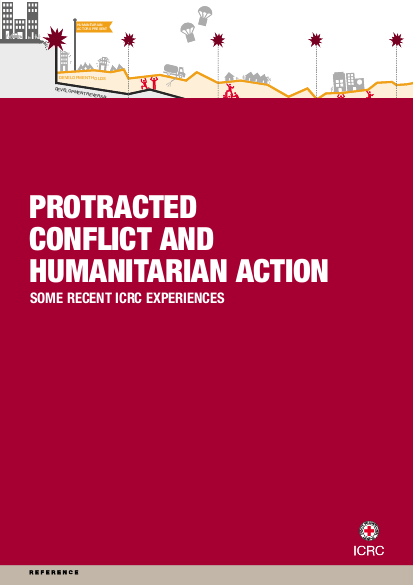
This report draws on some recent operational experiences of the ICRC to describe the theory and practice of the ICRC’s approach to humanitarian assistance in protracted conflict. The ICRC spends about two thirds of its budget on protracted conflicts. The average length of time the ICRC has been present in the countries hosting its ten largest operations is more than 36 years. Protracted conflicts are a major source of human suffering and a cause of protracted displacement, migration and development reversals.
The report contributes to important humanitarian policy discussions on the reliefdevelopment relationship, the urbanization of humanitarian response, multi-year planning and humanitarian financing. Chapter 1 starts with theoretical and legal analysis of protracted conflict. Chapter 2 examines the damaging effects of protracted conflict on State and society. Chapter 3 describes the ICRC’s “combined approach” to short and long-term needs.Chapter 4 looks at key areas where the ICRC is determined to improve its performance and some important international policy changes that will help it do so.